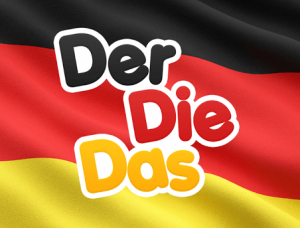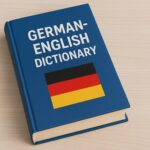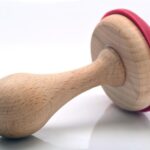 “Every noun has a gender, and there is no sense or system in the distribution; so the gender of each must be learned separately and by heart. There is no other way. To do this one has to have a memory like a memorandum-book.”
“Every noun has a gender, and there is no sense or system in the distribution; so the gender of each must be learned separately and by heart. There is no other way. To do this one has to have a memory like a memorandum-book.”
– Mark Twain, The Awful German Language
Indeed, in German, there are two indefinite articles (ein, eine) and three definite articles for nouns in singular: der for masculine nouns, die for feminine nouns, and das for neutral nouns.
German native speakers know mostly intuitively what the article of each noun is. However, non-native speakers need to memorize the articles. It may seem at first that there is no system to German articles attribution, however there are several rules and guidelines determining the articles of some categories of nouns.
Article ‘Die’
The following nouns have the article die:
- Nouns for feminine persons and functions/professions: Mutter, Friseuse, Ärztin;
- Names of motorcycle brands: Harley Davidson, BMW (only motorcycle), Yamaha;
- Names of planes and ships: Boeing 747, Titanic;
- Cardinal numbers: Eins, Drei;
The following categories of nouns have mainly the article die:
- Names of plants and trees: Birke, Chrysantheme, Rose;
exceptions: der Ahorn, das Veilchen;
Furthermore, nouns with the suffixes below have the article die:
- –falt: Vielfalt;
- –heit: Freiheit, Sicherheit;
- –keit: Möglichkeit, Schnelligkeit;
- –schaft: Freundschaft, Mannschaft;
- –t (nouns derived from verbs): Fahrt, Tat;
- –ung: Leitung, Zeitung;
Foreign nouns with the suffixes below have the article die:
- –ade: Hitparade, Marmelade;
- –age: Garage, Passage;
- –anz: Eleganz, Dominanz;
- –enz: Existenz, Tendenz;
- –ik: Kritik, Musik;
- –ion: Diskussion, Koalition;
- –tät: Identität, Qualität;
- –ur: Agentur, Reparatur;
Most of the nouns with the following suffixes have the article die:
- –e: Grenze, Lampe;
exceptions: der Junge, der Friede; - –ei: Abtei, Metzgerei;
exceptions: das Ei, der Papagei; - –ie: Diplomatie, Psychologie;
exceptions: der Junkie, der Hippie; - –in: Ärztin, Studentin;
exceptions: das Benzin, der Harlekin;
Tip: diminutives always have the article das: die Hand → das Händchen.
Article ‘Das’
The following nouns have the article das:
- Diminutives (–chen, –lein): Kaninchen, Fräulein;
- Nouns derived from infinitives: Essen, Schreiben;
- Nouns derived from adjectives: Gute, Böse;
- Names of colors: Rot, Gelb, Blau;
The following categories of nouns have mainly the article das:
- Almost all of the 112 known chemical elements: Aluminium, Kupfer, Uran;
6 exceptions: der Kohlenstoff, der Sauerstoff, der Stickstoff, der Wasserstoff, der Phosphor, der Schwefel; - Names of metals: Blei, Messing, Zinn;
exceptions: die Bronze, der Stahl; - Fractions: Drittel (⅓), Viertel (¼);
exception: die Hälfte (½);
Furthermore, nouns with the suffixes below have the article das:
- –ial: Material, Potenzial;
Most of nouns with the following suffixes have the article das:
- –ment: Instrument, Parlament;
exceptions: der Konsument, der Zement; - –nis: Ergebnis, Tennis;
exceptions: die Fahrerlaubnis, die Wildnis; - –o: Auto, Konto;
exceptions: die Avocado, der Euro; - –tum: Quantum, Ultimatum;
exceptions: der Reichtum, der Irrtum; - –um (nouns of Latin origin): Publikum, Museum, Stadium;
Tip: this is applicable only to nouns in singular. All nouns in plural have the article die.
Article ‘Der’
The following nouns have the article der:
- Nouns for masculine persons and functions/professions: Vater, Pilot, Arzt;
- Names of seasons: Frühling, Sommer, Herbst, Winter;
- Names of months: Januar, Juli, Dezember;
- Names of days of the week: Montag, Dienstag, Sonntag;
- Names of compass directions: Nordwest(en), Süd(en);
- Names of precipitations: Regen, Schnee, Hagel;
- Names of car brands: Audi, BMW, Mercedes;
- Names of trains: IC;
- Nouns derived from verbs without suffix: Gang, Fang;
The following categories of nouns have mainly the article der:
- Names of alcoholic beverages: Cognac, Wein, Whiskey;
exceptions: das Bier; - Names of rivers outside Europe: Amazonas, Mississippi;
- Names of mountains: Mont Blanc, Kilimanjaro;
exception: die Zugspitze;
Furthermore, nouns with the suffixes below have the article der:
- –er (nouns derived from verbs): Fahrer, Lehrer;
- –ismus: Kapitalismus, Journalismus;
Most of the nouns with the following suffixes have the article der:
- –ant: Demonstrant, Elefant;
exceptions: das Croissant, das Restaurant; - –ling: Lehrling, Schützling;
exceptions: das Dribbling, das Bowling; - –ner: Rentner, Schaffner, Zöllner;
exceptions: das Banner, die Wiener (Wurst); - –or: Motor, Traktor;
exceptions: das Gegentor, das Chlor.







